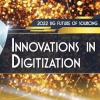Why Work At Home Agent Processes Must Be Secure
Since the onset of the pandemic, many office workers have spent more time working from home. In the BPO sector, this has meant finding workable, advanced technological solutions for our agents, something that is setting apart the leaders in the sector from the rest.
But central to this procedural shift is the security element. With stories of even the most sophisticated and secure information systems being intercepted, cybersecurity is increasingly becoming the predominant building block to life in the new normal.
Indeed, the security element goes much further than technology alone. Security must be built end-to-end, starting from profile selection down to customer experience design, connectivity, surveillance and workplace design.
Building Technical Capabilities into Networks and Digital Processes
Undoubtedly, a certain element of ensuring a sufficiently secure remote working ecosystem will include having the correct technical elements. End-to-end encryption is the highest level of data security for communications between two parties and vital for any interaction with two or more parties involved, one of the crucial elements in the outsourcing sector.
Agents, final customers, and front and backend systems must be covered, and ensuring their data is protected from third-party interception is vital, so that the message only reaches those for whom it is intended. A large part of reducing the risk to customer data being intercepted lies in providing only the essential end customer data required to deliver the service, but guaranteeing it’s enough not to take away from the good customer experience element. It is the fine tuning and the combination of these two elements that can allow a secure business to thrive.
Safeguarding Hardware in the Home
Other seemingly simpler safeguards should also be put in place. Double-factor authentication requires adding a unique code sent to a mobile phone device as an additional barrier to access the device, which may also include facial recognition or fingerprint authentication. Facial recognition can also be used to block a session after a certain amount of downtime. In this instance, if the agent’s face is not recognized or detected at any given moment by the workstation’s camera, the session is automatically blocked and the agent cannot reaccess the information system until they log in again.
These measures prevent other family members or cohabitants from accessing sensitive information, and also avoids those mishaps or accidents that are sometimes inevitable in these working situations. Regardless of these integrated security measures, agents should ensure workstations are blocked or disabled after working hours and during breaks for heightened security.
Implementing new infrastructure systems, such as virtual hubs, can help apply advanced across-the-board security features by allowing clients to have a global understanding of any function from a central point. By housing several business processes on one hub clients can have a global view of their operation at a click of a button, giving them a 360-degree view and ensuring that nothing slips through the net, allowing them to safeguard at an additional level.
Recruitment and Training
Being able to implement effective solutions relies on having the correct talent to do so. That goes without saying. And this means ensuring the recruitment of specialized professionals with the know-how and capabilities to scale large-size projects and carry out due-diligence exercises to guarantee that all bases are covered. Alternatively, providing the correct training to encourage in-house key workers with the potential to encompass the necessary roles will retain talent that otherwise might start looking for work elsewhere.
But the training must also go beyond the IT department. It is crucial for business owners to take time to address the changes to new remote or hybrid working measures with their other employees. Advising and educating agents on best practices for working from home is just as important as installing the technology and equipment in the first place. Supervisors also play an essential role here given that they help provide service quality and secure agent engagement. Ensuring that they have the training and support they need to do this is vital.
All of this may mean needing to adapt codes of conduct or introducing new materials to formalize these ways of working. In order to do so, a common approach set at the corporate level will ensure that these values become deeply rooted as a business-wide goal, establishing them as a corporate value in its own right.
Success for Security
Forward-looking companies are turning to new integrated solutions using multiple channels to cater to their customer experience needs. Customer experience has been thrust to the fore over the recent months and is therefore now more comparable from one provider to the next, meaning service providers need to have watertight processes and deliver an impeccable performance.
BPO providers need to show their commitment to supporting their clients’ changing needs. By taking the time to understand these requirements and finding innovative, swift and effective solutions, they can prove both their effectiveness and productivity in the virtual workplace.
And let’s face it, one of the main challenges to a distributed workforce is encouraging agents to remain both engaged and productive during their shifts. Overcoming this task will require offering workers the means to make good use of idle time, providing them with the correct tools to make wise decisions when dealing with customers and empowering them by ensuring their KPIs are clear. All these factors can contribute not just to a happy agent, but one that is ultimately more likely to comply with security measures and be more productive while working remotely.









